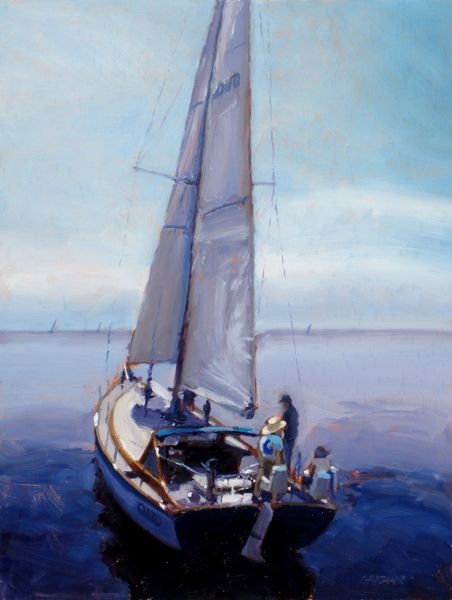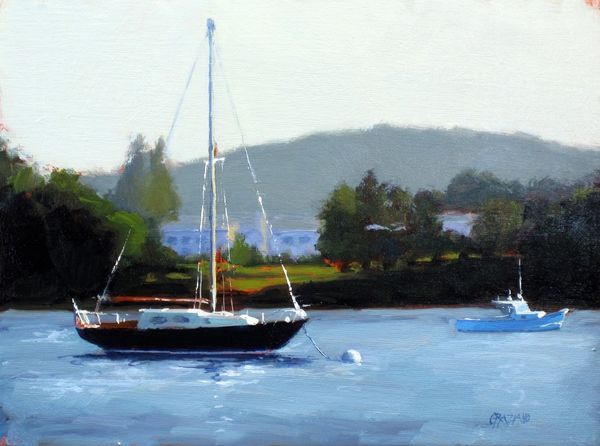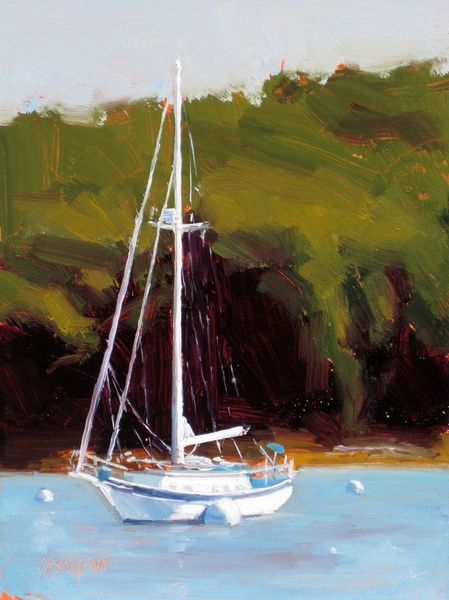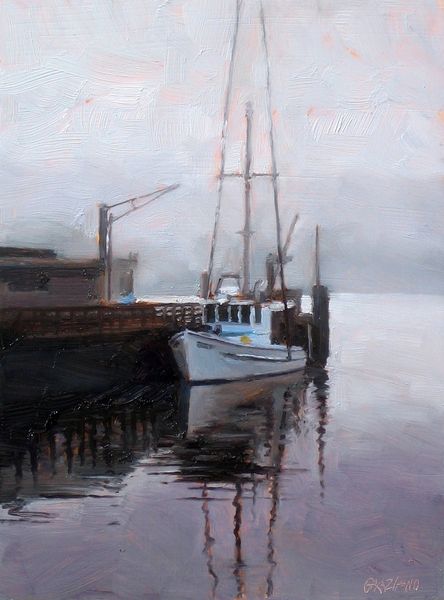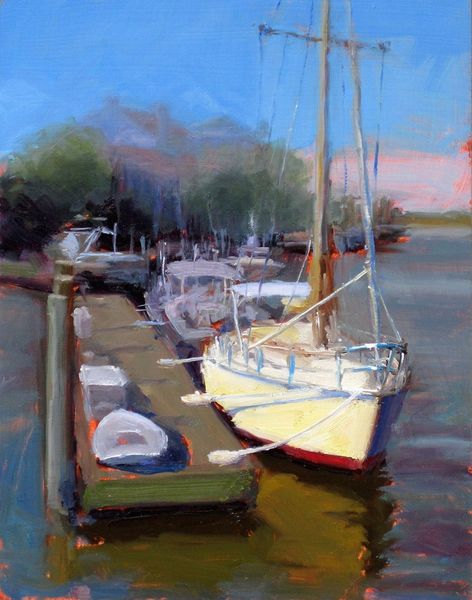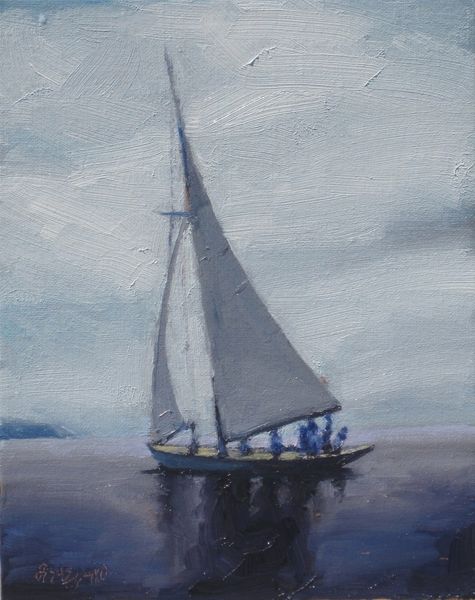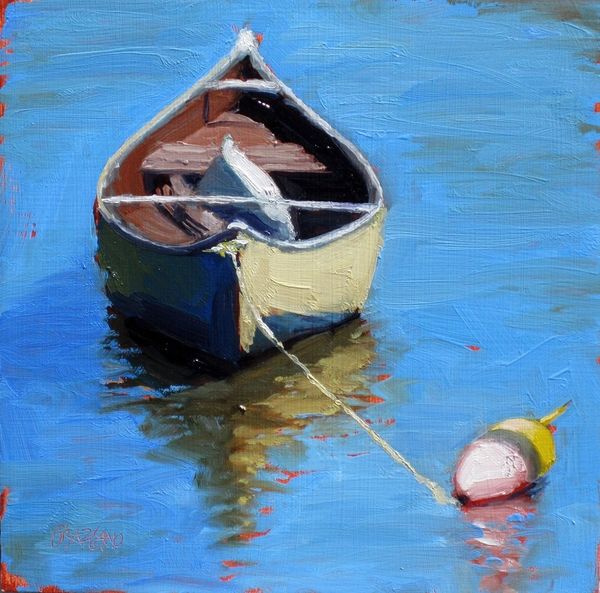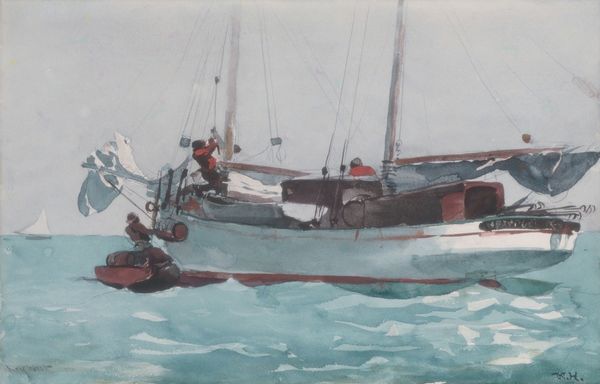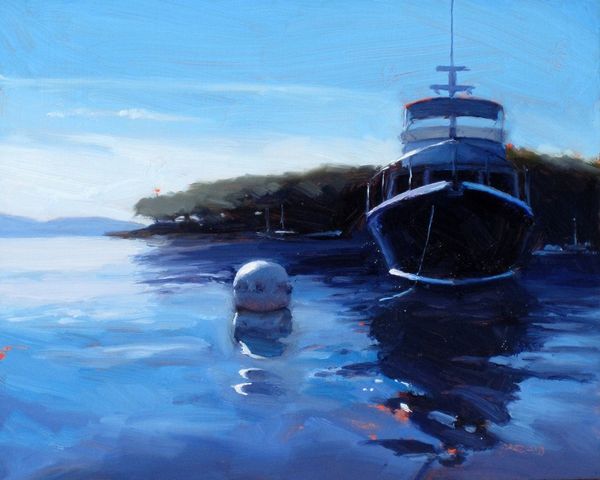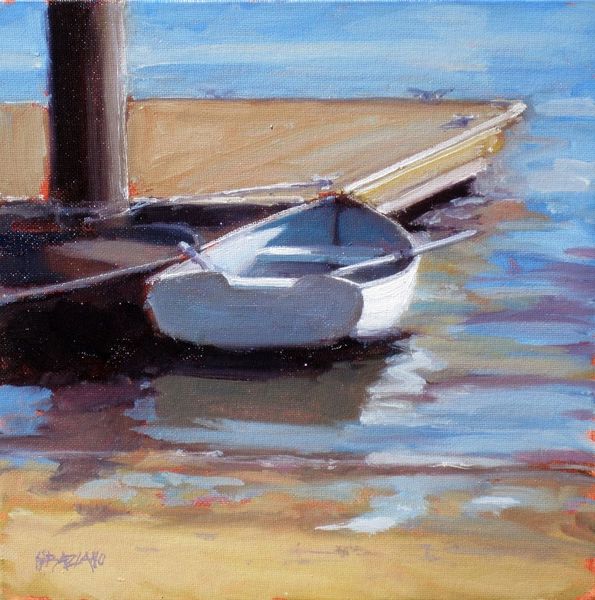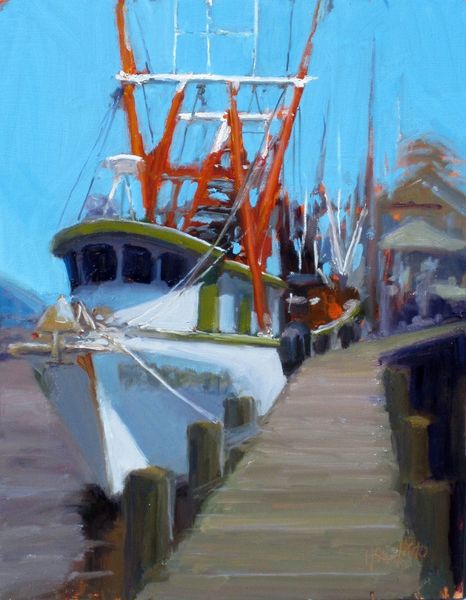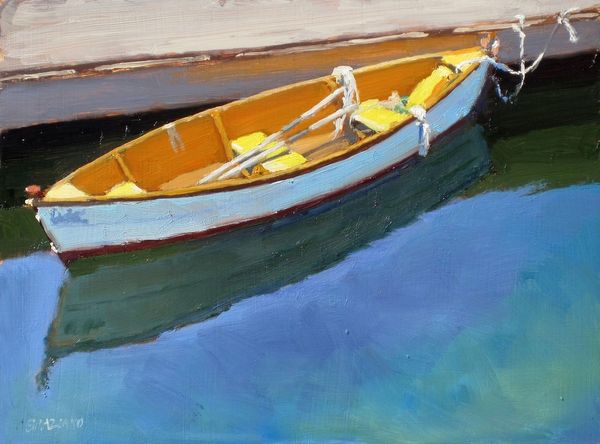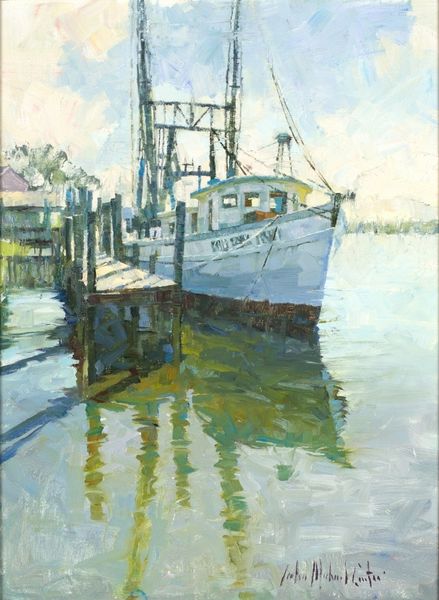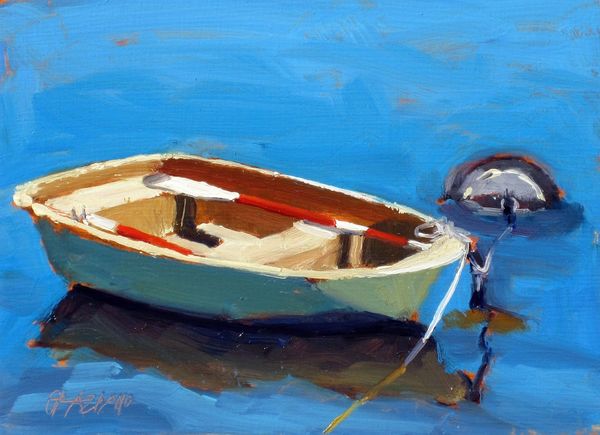
painting, plein-air, oil-paint
#
painting
#
impressionism
#
plein-air
#
oil-paint
#
landscape
#
impressionist landscape
#
oil painting
#
cityscape
#
genre-painting
#
modernism
#
expressionist
Copyright: Modern Artists: Artvee
Editor: So, here we have "Guildive," an oil painting by Dan Graziano. It feels very much like an Impressionist scene, a moment captured in dappled light and color. What do you see in this piece? Curator: It’s interesting how Graziano positions this boat, almost confronting us. The vibrant red against the cool blues creates a visual tension, drawing our eye immediately. But I'm curious about that name, "Guildive." It suggests a kind of colonial, possibly Caribbean, trade history – think rum, slavery, and exploitation. Do you think the artist intended to evoke that historical weight? Editor: I hadn't considered that! I was mainly focused on the visual aspect, the play of light on the water. But you're right, the name opens up a whole other dimension. Does the boat's somewhat worn appearance support a post-colonial interpretation, perhaps? Curator: Precisely. The visible wear suggests a life lived, a history etched into its very being. It pushes us to consider not just the aesthetic appeal but also the socio-political narrative that the painting might be hinting at. Think about the tradition of maritime painting: it often romanticized sea travel. How does this contrast to our painting? Editor: It definitely disrupts that romanticized view. The shadows and maybe even the title introduce some degree of darkness to the image. Is it possible that, intentionally or unintentionally, the artist is drawing parallels between maritime industries and the contemporary legacy of colonialism? Curator: It's certainly a plausible reading, considering the legacy continues to shape global economies and power dynamics today. The seemingly simple scene now offers multiple entry points into deeper historical and cultural inquiries. How does it change your view of impressionism? Editor: It challenges my idea of impressionism, which I used to perceive as very formal. I will explore how the genre interacts with these deeper, often invisible social and historical issues in the future. Curator: Indeed. Art always reflects and refracts the world around it, prompting us to critically engage with its complex layers.
Comments
No comments
Be the first to comment and join the conversation on the ultimate creative platform.
